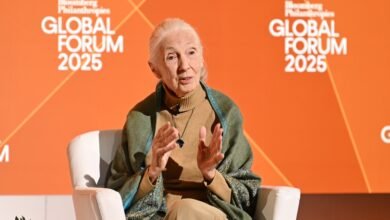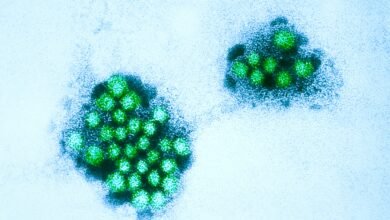Ai risk a professional ‘broken’ staircase for university graduates, some experts say

Artificial intelligence could change the entry level work as the recent university graduates enter the labor market, eliminating many positions at the bottom of the white collar professional ladder or at least remodeling them, some experts said to ABC News.
Such forecasts follow the advances of years in chatbots fed with AI and statements of some company executives on the start of AI automation.
Dario Amodei, CEO of Anthrope, who created a model of the called Claude, said Axios Last week, that technology could reduce entry level work in half in five years.
When Business Insider fired 21% of its staff last week, CEO Barbara Ping saying The company would go “everything in AI” in an effort to “climb and operate more efficiently.”
Analysts who talked to ABC News said that AI could replace or reorient entry level work in some white -collar fields led by university graduates, such as computer programming and law.
The current work problems for this cohort, added, must probably be partly to economic conditions beyond technology. They said that many blue collar works and others will remain largely intact by AI, and point out that young technology expert workers may be better positioned to fill new jobs that incorporate AI.
“We are in the flow of a dramatic change,” said Lynn Wu, a professor of operations, information and decisions at the University of Pennsylvania. “I sympathize with university graduates. In the short term, they can keep mom and dad for a while. But in the long run, they will be right. They are native to.”
During the first months of 2025, the labor market for recent university graduates “was significantly deteriorated,” the New York Federal Reserve saying In April. He did not provide a reason for the trend.
The unemployment rate for recent university graduates reached 5.8%, its highest level since 2021, while the underemployment rate shot over 40%, said New York Fed.
Youth unemployment probably comes from trends in the broader economy instead of AI, Anu Madgavkar, head of labor market research at the McKinsey Global Institute, said ABC News
The softened labor market coincides with the commercial uncertainty and the gloomy economic forecasts caused by the tariff policy of President Donald Trump.
“It is not surprising that we are seeing this unemployment for young people,” said Madgavkar. “There is a lot of economic uncertainty.”
Even so, entry level tasks in white collar professions have a serious risk by AI, analysts said, pointing out the ability of technology to perform written and computational tasks instead of manual labor.

The CEO of Anthrope, Dario Amodei, observes while participating in a session on AI during the Annual World Economic Forum (WEF) in Davos, on January 23, 2025.
Fabrice Coffrini/AFP through Getty Images, Archive
The AI could replace the work previously done by low -level employees, as legal assistants that compile relevant precedents for a case or computer programmers who write a basic set of code, said Madgavkar.
“The bleeding edge or the first type of work that will be hit a little more biased towards the entry level, the most basic work that is automated at this time? That is probably true,” said Madgavkar. “You could make fewer people stagnate.”
Speaking bluntly, Wu said: “The biggest problem is that the professional staircase is broken.”
However, for the most part, Madgavkar said that entry level positions would change instead of disappearing. The managers will reward the problem solving and the analysis of the tasks that depend on the effort, he added, pointing out that the required skills set will probably include an ability to use AI.
“I do not think it means that we will not have a demand for entry level workers or greatly less demand,” said Madgavakar. “I think the expectations for young people to use these tools to accelerate very quickly.”
Some works and tasks are still largely immune to AI automation, analysts said, pointing out practical work such as manual work and trades, as well as professional roles such as doctors and high management.
Isabella Loaiza, a researcher at the Massachusetts Institute of Technology who studies AI and workforce, was co -author of a study that examines the change of jobs and tasks throughout the United States economy between 2016 and 2024.
Instead of dispensing with qualities such as critical thinking and empathy, the technology of the workplace increased the need for workers who exhibit these attributes, said Loaiza, citing the demand for occupations as early education teachers, health assistants at home and therapists.
“It is true that we are seeing AI having an impact on white collar work instead of a blue collar job,” Loaiza said.
But, he added, “we discovered that the works that are very human are probably more robust.”





